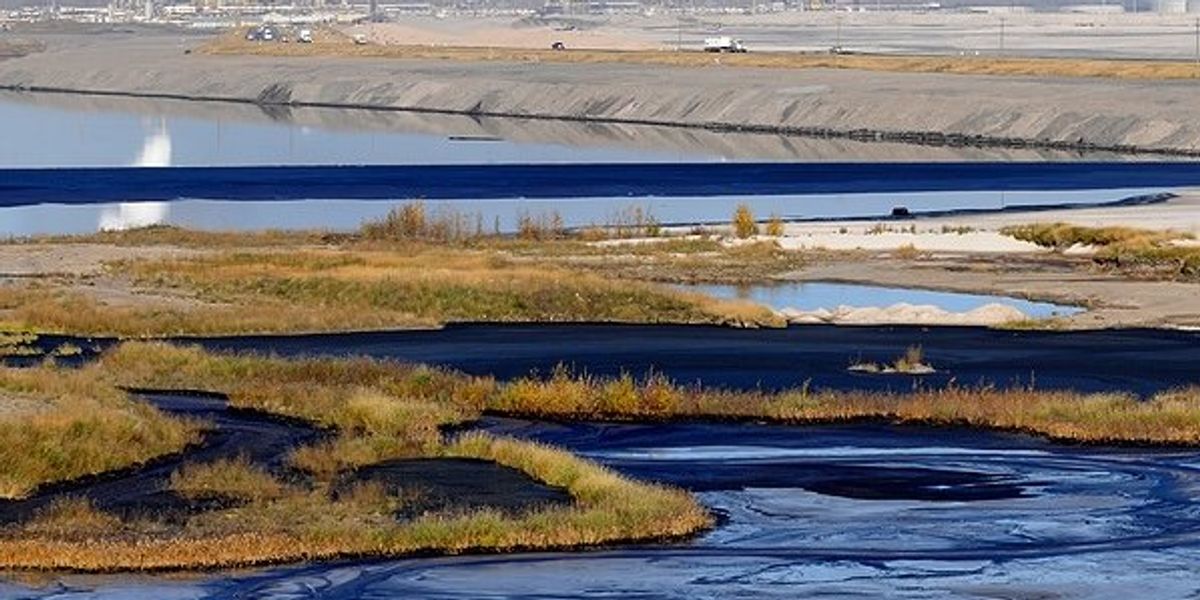profits
Big oil companies report soaring profits and increased production
Major oil companies like Exxon Mobil, Shell and BP reported higher-than-expected profits due to increased oil and gas production, while Chevron's earnings fell short because of its refining business.
In short:
- Exxon Mobil achieved a 15% increase in second-quarter production thanks to record outputs in the Permian Basin and Guyana, while Chevron announced it will relocate its headquarters to Houston.
- ConocoPhillips is advancing its Willow oil project in the Arctic, despite opposition, with expectations of producing 180,000 barrels per day by 2029.
- Shell and BP face criticism from environmental groups for shifting away from renewables and prioritizing short-term shareholder profits from fossil fuels.
Key quote:
“It is shameful that Shell…continues to reap billions in profits off the back of its planet-wrecking oil and gas operations.”
— Chiara Liguori, senior climate justice policy adviser for Oxfam Great Britain
Why this matters:
The oil companies' focus on fossil fuel production over renewable energy investments could hinder global climate goals. This trend underscores the tension between corporate profit motives and environmental responsibility.
US lawmakers push for legislation to halt water trading amid scarcity concerns
Senators Elizabeth Warren and Ro Khanna aim to prevent water trading to protect essential resources, citing concerns over speculation and profit-making in water-scarce regions.
In short:
- The proposed bill seeks to block private investors, including hedge funds, from trading water rights, particularly in California where water futures trading is practiced.
- This legislative effort, named the Future of Water Act, follows reports of increasing corporate acquisitions of water rights in the western U.S., raising alarms about potential profiteering.
- Environmental groups and a U.N. expert have criticized water futures markets, warning they could lead to water commodification and affect real water availability.
Key quote:
"Water is not a commodity for the rich and powerful to profit off of."
— Elizabeth Warren, U.S. senator
Why this matters:
There's a concern that market-driven water trading undermines sustainable water management practices. Profit motives may override conservation efforts, leading to unsustainable water use patterns.
Climate change is exacerbating water scarcity. One example: Climate disruption is resulting in diminishing winter snowpacks and rapid spring runoff, thereby depriving farmers of this valuable asset, and for much of the world, there are no known substitutes.
Shell scales back its climate goals amid business growth
In a strategic pivot, Shell aims for a modest reduction in emissions by 2030, facing criticism for prioritizing expansion over environmental commitments.
Jillian Ambrose reports for The Guardian.
In short:
- Shell adjusts its carbon emissions reduction target to 15-20% by 2030, down from an initial 20%.
- The company plans to expand its liquified natural gas operations and maintain current oil production levels.
- Critics denounce the move as a step back for climate action, highlighting Shell's focus on profit over planet health.
Key quote:
This "retrograde step" shows once again that Shell has "no interest in acting for the climate."
— Agathe Masson, campaign group Reclaim Finance
Why this matters:
Shell's decision reflects a broader tension in the energy sector between economic growth and environmental stewardship. With the climate crisis looming, the strategies of major energy firms have significant implications for global efforts to combat climate change, affecting health and sustainability initiatives worldwide.
Big carmakers lobbied UK to weaken or delay electric car rules
Several of the world’s biggest carmakers lobbied the UK government to try to weaken or delay rules to accelerate electric car sales and cut Britain’s carbon emissions.
Every country wants to be the last extracting fossil fuels
No fossil fuel company or country has a real plan for phasing out fossil fuels.
The true cost of climate pollution? 44% of corporate profits
What if companies had to pay for the problems their carbon emissions cause? Their profits would plunge, according to new estimates, possibly wiping out trillions in financial gains.
‘Drill, frack, burn coal’: Republicans echo Trump at presidential debate
Former President Donald Trump might not have been at Wednesday’s Republican presidential debate, but his energy policy and rejection of climate science took center stage.



















